Publications
Articles, publications, books, tools and multimedia features from the U.S. Institute of Peace provide the latest news, analysis, research findings, practitioner guides and reports, all related to the conflict zones and issues that are at the center of the Institute’s work to prevent and reduce violent conflict.
Iran, Nuclear Weapons, and the IAEA
This week, the International Atomic Energy Agency (IAEA) is scheduled to release a report on the status of Iran’s nuclear weapons program. USIP’s Dan Brumberg discusses the possible impact of the report.
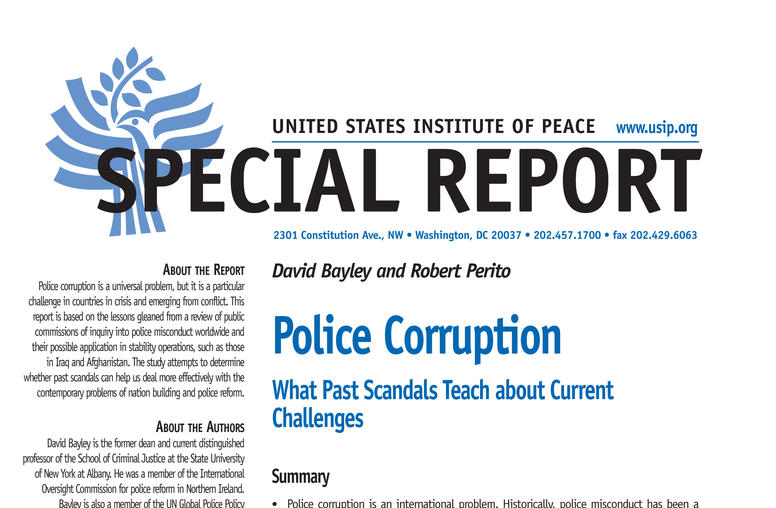
Police Corruption
Police corruption is a universal problem, but it is a particular challenge in countries in crisis and emerging from conflict. This report is based on the lessons gleaned from a review of public commissions of inquiry into police misconduct worldwide and their possible application in stability operations, such as those in Iraq and Afghanistan.
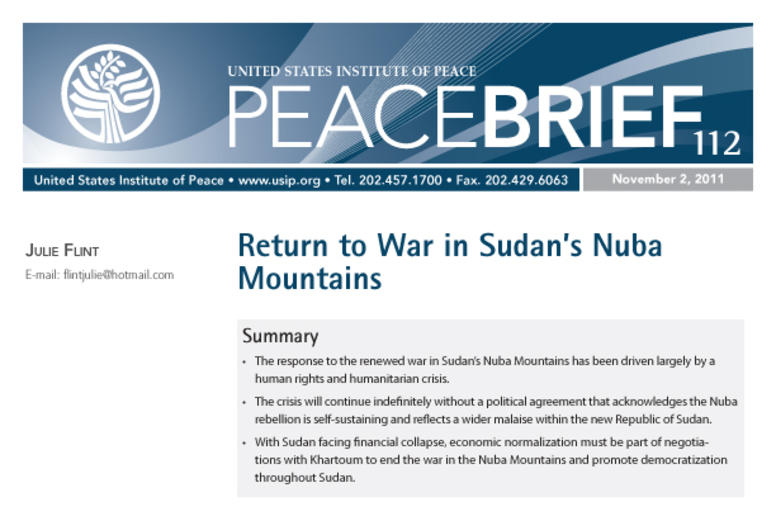
Return to War in Sudan’s Nuba Mountains
This brief looks at what is driving the fighting in Sudan’s Nuba Mountains. Journalist Julie Flint has written extensively on Sudan, reporting on the Nuba Mountains since 1992. This piece is based on her most recent visit, in September.
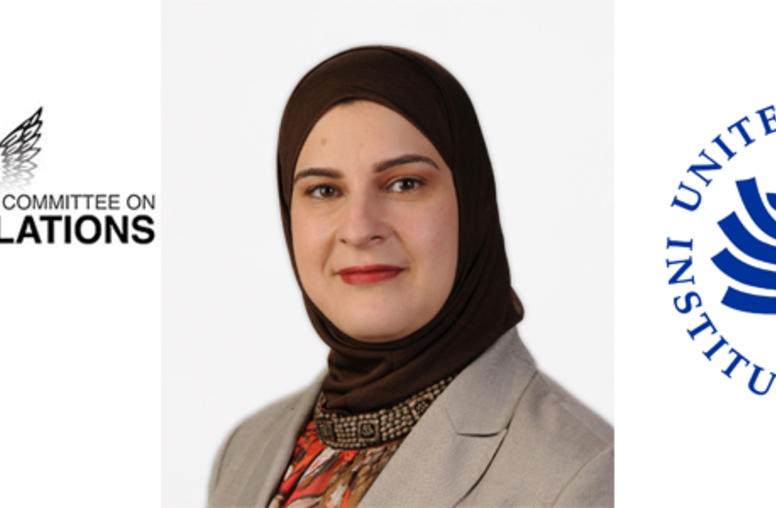
Women and the Arab Spring
Manal Omar, director of Iran, Iraq and North Africa programs at the U.S. Institute of Peace, testified before the Senate Foreign Relations committee on November 2, 2011, on the role of women in the Arab Spring, and more specifically, their role in Libya.
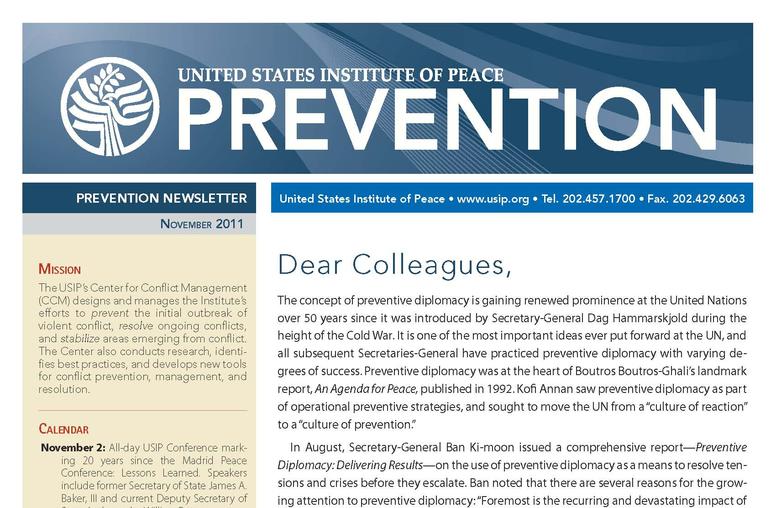
USIP Prevention Newsletter - November 2011
The November 2011 Prevention Newsletter features a spotlight on the Palestinian Quest for Statehood: On September 23, Palestinian President Mahmoud Abbas submitted an application to admit Palestine as a full-state member of the United Nations. The Palestinian and Israeli leaders should capitalize on their recent boosts in domestic popularity to pursue serious progress towards peace.
Money Spent on Peacebuilding is an “Investment”
Money spent on peace is an “investment” that will eventually “mature,” said Congressman John Garamendi (D-CA) at the U.S. Institute of Peace on Oct. 27, bringing both short- and long-term gains to the United States and countries around the world. Garamendi, who served as a Peace Corps Volunteer in Ethiopia from 1966 to 1968, offered his remarks at a USIP event marking the 50th anniversary of the Peace Corps’ founding.
A Democratic, Islamist Tunisia?
Dan Brumberg, Senior Adviser for the Center for Conflict Management discusses the recent democratic elections in Tunisia.
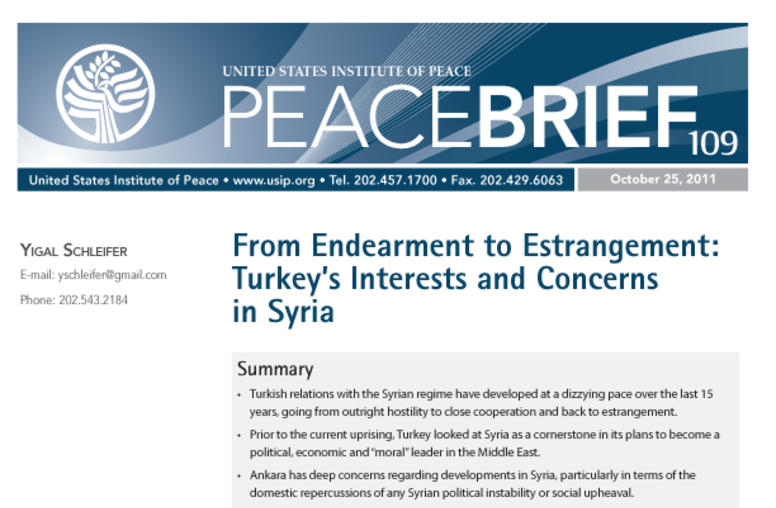
From Endearment to Estrangement: Turkey’s Interests and Concerns in Syria
This brief is part of a series examining the regional dimensions of Syria’s popular uprising. The Institute invited leading experts from the U.S. and the Middle East to identify key vectors of influence Syria’s neighbors are bringing to bear on the conflict, to forecast how the situation there will affect the regional balance of power and to examine how the opposition and the Syria regime are responding to these regional dynamics. This study on Turkey was written by Yigal Schleifer, a Washing...
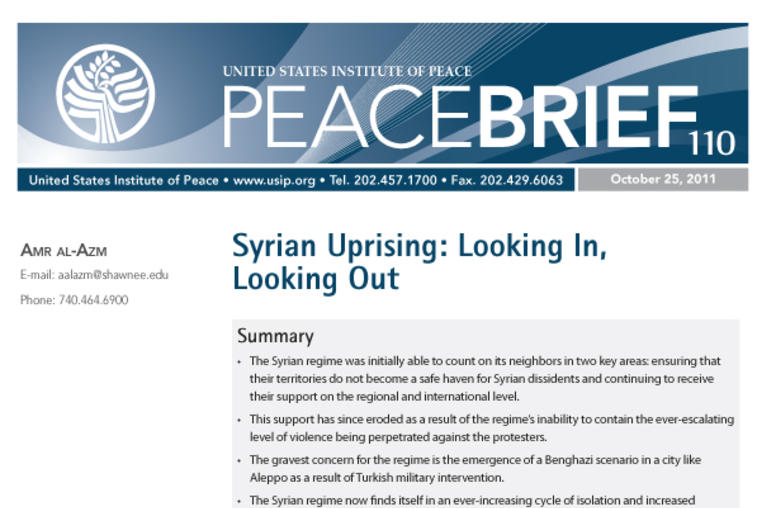
Syrian Uprising: Looking In, Looking Out
Amr al-Azm is an active member of the Syrian opposition and a professor of Middle East history and anthropology at Shawnee State University. This Peace Brief aims to examine the deteriorating relationship between the Syrian regime and its neighbors and the possible emergence of a “Benghazi scenario” involving Turkish military engagement.
Qaddafi’s Death and The Challenges of Building a New Libya
Libyans have reacted overwhelmingly positively to the news of Muammar Qaddafi's death. USIP's Manal Omar discusses what impact his death will have on Libya's transition and future.